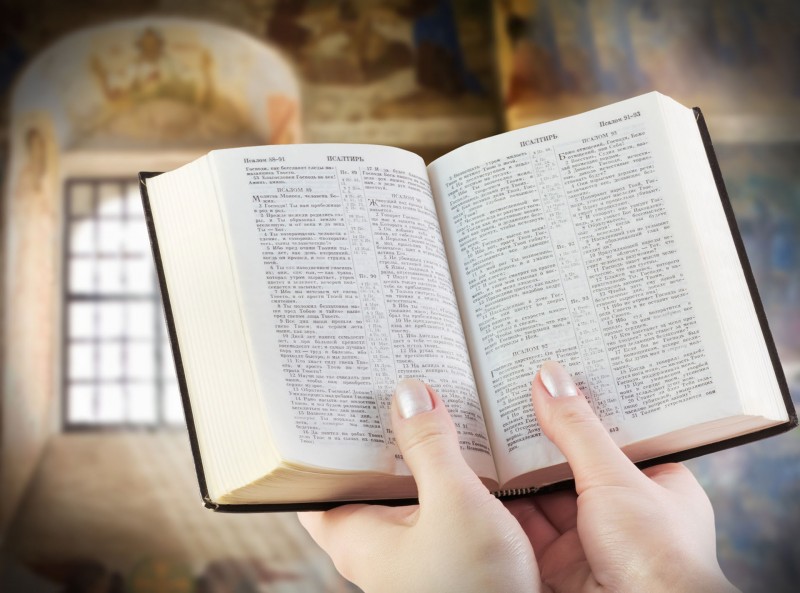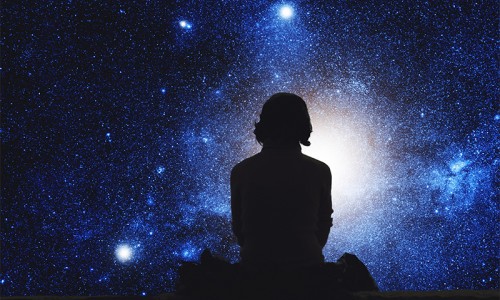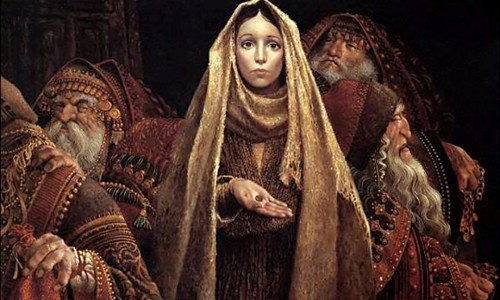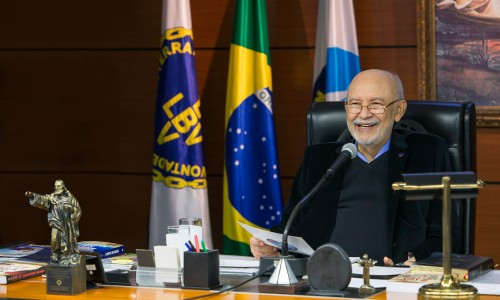Everyone can predict their destiny
In times when we hear so much about prophecies, announcements of great changes, when we witness environmental catastrophes and see prospects of destruction throughout the world, we are also called upon to reflect on the role of those who are the emissaries of these revelations, those who announce them centuries and millennia before they happen: the prophets. Who are they? What gifts are they endowed with that they can receive the divine message and proclaim the destiny of Humanity? What would it be like if we could all do the same in our lives?

Cicero (106 – 43 B.C.) said:
“There is no people, however refined and cultured they may be, that does not believe in the gift that certain individuals have of predicting the future”.
In the Old Testament, in the book of Amos, 3:7, we find the following statement:
“Surely the Sovereign Lord does nothing without revealing his plan to his servants, the prophets”.
Prophets are endowed with medium-like or paranormal abilities and are witness to the word with which they are entrusted, without worrying whether they will be badly judged by their peers. The President and Preacher of the Religion of God, of the Christ, and of the Holy Spirit1, José de Paiva Netto, demystified the subject by elucidating that the prophets are not people who are “chosen” in an arbitrary way by God to exclusively receive his Revelations, but that “We are all Prophets”2, to the extent that we undertake and acquire the skills necessary for using this divine mechanism in favor of the spiritual maturing of Humanity.
+ Can Spirits Influence our Decisions?
+ Apocalypse: the Divine Book delivered to Humanity
+ Who is God?
“In Spirit on the Day of the Lord”
In the Religion of Universal Love, every human being is considered originally Spirit and, therefore, a being that intrinsically has the capacity to be witness to the revelations and universal laws of a Higher, Spiritual and Divine Wisdom. This is an affirmation that was confirmed, for example, in the early access to future events granted to John the Evangelist when he reported the Apocalypse, because the evangelist-prophet himself said he was found to be “in Spirit on the Day of the Lord” (Apocalypse of Jesus, 1:10).

Paiva Netto elucidates that we can all experience this state of Soul that allows us to be on the same wavelength as God, pointing out that the experience of John the Evangelist, when he received the book of the Final Prophecies as confirmation that his understanding and experience of higher spiritual values (which the Apostle had learned from Jesus), gave him the capacity needed to receive the Revelation.
The Brazilian academic of the prophetic book of Jesus also says that, in this way, everybody can understand the prophetic warnings that occur on their lives and also become agents of it. They can also conduct their own history and lead it to a happier direction, if they are prepared to prophesy a better course for themselves, through the quality of their choices3. It is as if we had all received from the Architect of the Universe the tools we need for writing our own destiny.
Everything that has been prophesied was written by us before, through the use we make (either good or bad) of the freewill we had in our previous lives, or even in this one. We can (or chose not to) build the progress of understanding, wisdom and technologies that serve to reduce inequality. We are the ones who construct our own destiny and that is why it is important that we understand that the decision to build it well lies in our own hands.
After all, the Prophesies are not Divine punishments for Humanity. They are warnings regarding the reactions generated by human behavior and attitudes. It is important to understand about the logic that sustains prophetic knowledge (the logic that for every action there is a reaction, a universal law revealed by spiritual adepts and identified by science) in order not to confuse it with human forecasts, which have to do with the expectation of events established with a specific date and time, and which ignore the individual freedom everyone has to modify their own existence. Regarding the need not to remain a prisoner of such fatalism, Paiva Netto concludes:
“Every day is the day to renew our destiny”.
Through our own actions we are the ones who allow suffering and pain to be the disciplinarian masters that drive our existence. For example, when we prefer predatory consumption to the responsible use of natural resources, we are generating pain for ourselves, when we could (and can) make choices that are worthier of the spiritual, ethical and technological progress we are striving for. Perhaps it is precisely for this reason, because of the recognition of our current greedy behavior, that the prospects for the future of the Earth are still so bad.
Our conscience reveals to us what the prophecies always said and that science today confirms: if we continue acting in the same way—without correcting ourselves or seeking to live in accordance with the laws of solidarity and justice—we shall continue being unable to see, not even in science fiction movies, a happy destination for our planet.
But not all is pain. In the holy books of the most diverse religions and also in the conclusions of the secular prophets,—recognized by the Religion of the Third Millennium as the scientists who dedicate themselves to reflecting in a solidary fashion on the future of the Earth,—there is a message of hope and renewal that survives and summons us to build a new possible world, based on universal brotherhood. We can all learn from the Prophecies so we can prepare ourselves for experiencing them and even altering our future. Paiva Netto says:
“In fact nothing gives us more comfort than the Prophesy. It is our spiritual daily bread, because it warns us and prepares us for the future events and encourages us to pertinacity so that we never distance ourselves from the divine ethics”, from Somos todos profetas [We are all prophets], by Paiva Netto.
If you have any question and/or comment about this and other topics, send them to the Religion of the Third Millennium. Let the Ecumenical Spirituality become a part of your life! And if you felt good reading this article, share it! It might touch the heart of other people too.
__________
1 Religion of God, of the Christ, and of the Holy Spirit — also called the Religion of the Third Millennium, and the Religion of Universal Love. This is the Ecumenical Religion of Brazil and the world.
2 This is the second volume of the O Apocalipse de Jesus para os simples de coração, [The Apocalypse of Jesus for those who are simple at heart] collection, written by Paiva Netto. In this volume we find a similar subtitle on page 100.
3 Thesis defended by the author of “We are the prophesy”, in Somos todos profetas [We are all prophets], p.99, by Paiva Netto.
Version: Rob Dinham
Revision: Rosana Bertolin



